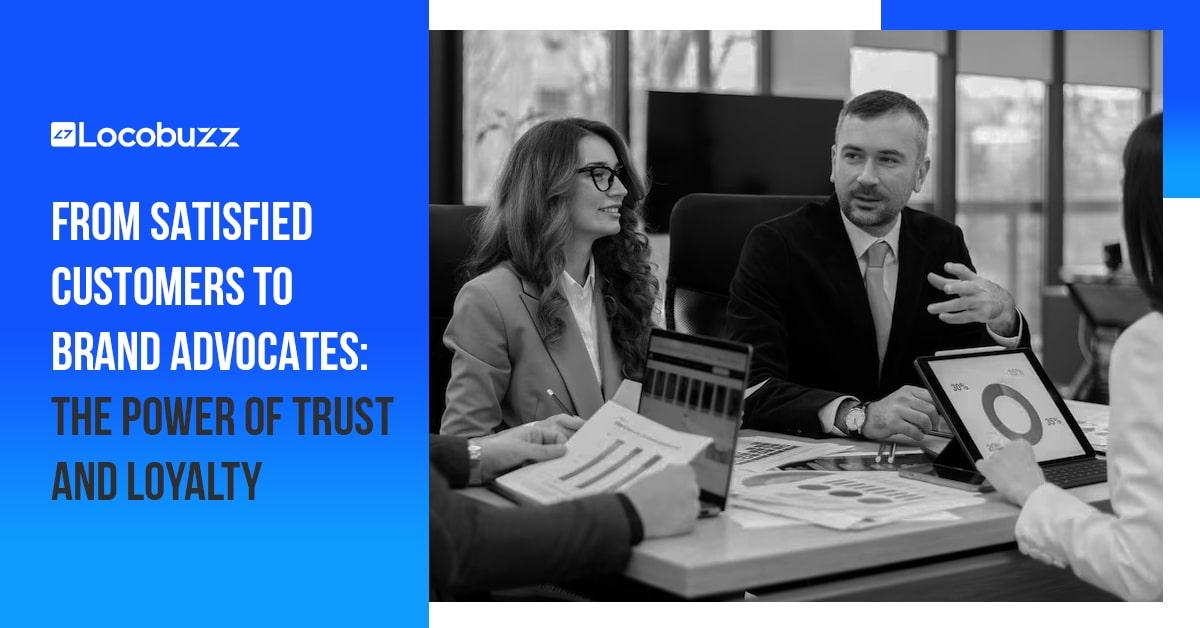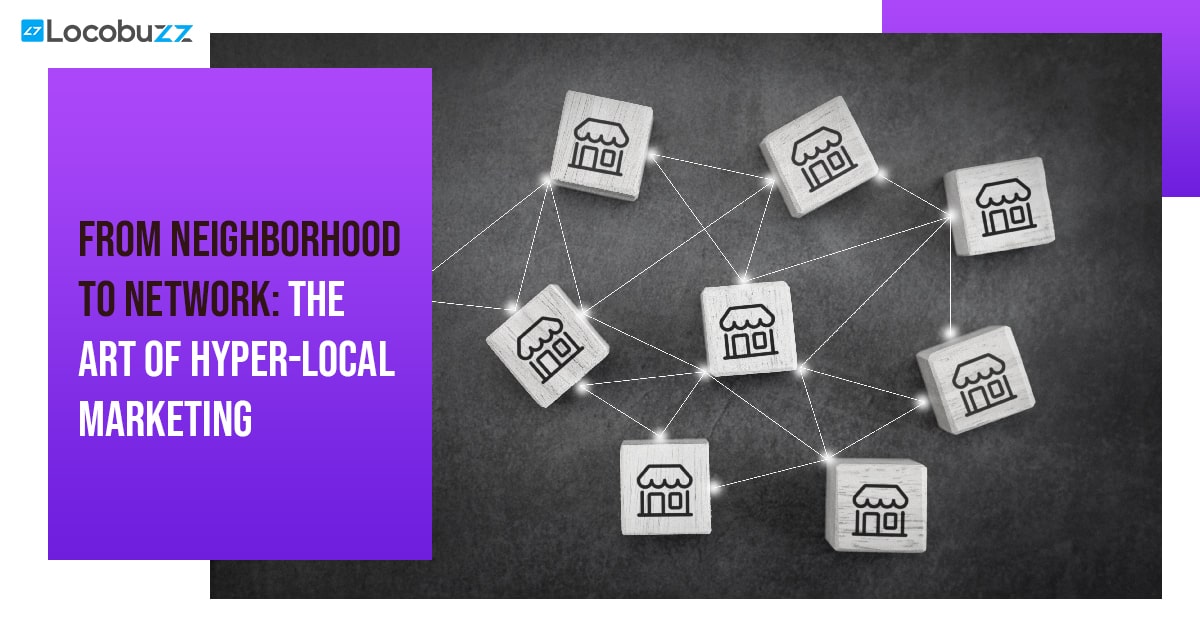Online Reputation Management - The Ultimate Guide
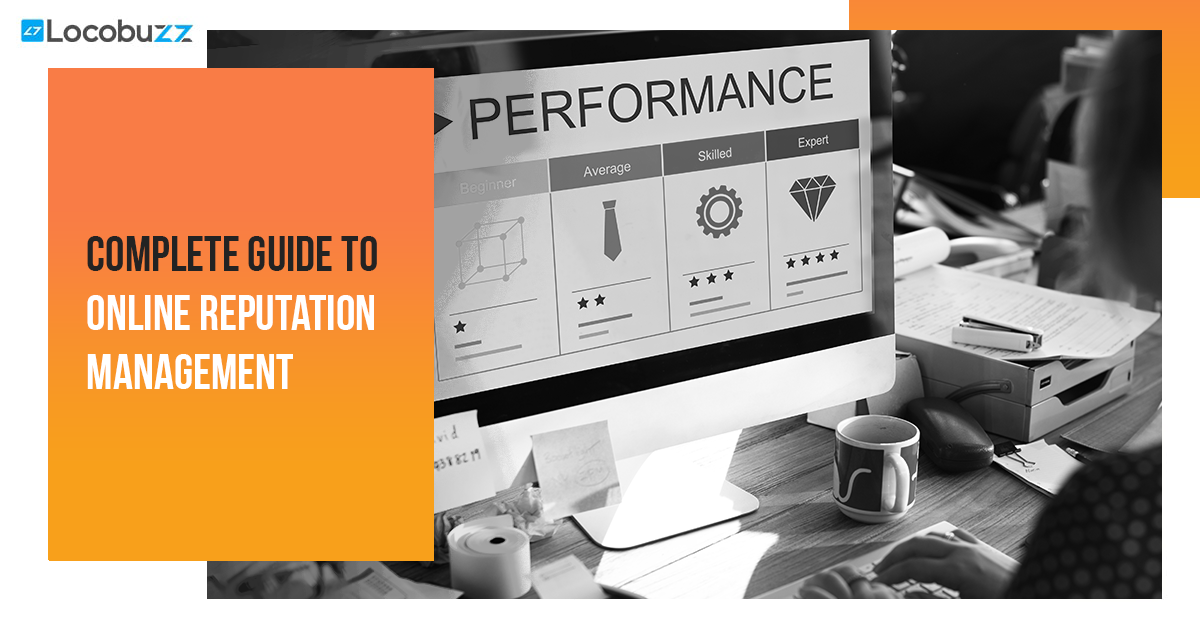 Welcome to the world of Online Reputation Management (ORM), where the digital landscape holds the power to make or break your brand’s success.
Welcome to the world of Online Reputation Management (ORM), where the digital landscape holds the power to make or break your brand’s success.
In today’s interconnected world, your online reputation is more important than ever, influencing the decisions of potential customers, partners, and even employers.
It’s time to take control and harness the immense potential that lies within effectively managing and enhancing your brand’s image.
Let’s embark on this transformative exploration of Online Reputation Management and pave the way to your digital success!
Table of Contents
What Is ORM?
Online reputation management (ORM) is the process of monitoring, influencing, and managing the online perception and reputation of a brand or organization.
ORM aims to build and maintain a positive online reputation, enhance brand credibility, establish trust with the audience, and mitigate the impact of negative content or events.
By proactively managing online perception, entities can shape public opinion, attract customers, and foster a positive online environment.
ORM includes addressing negative information about your brand posted on social media because it may hurt the reputation of your brand. Additionally, using customer reviews to solve issues effectively before they diminish the brand’s reputation is also important to growing your business.
What Is the Main Objective of Online Reputation Management?
Online Reputation Management (ORM) aims to shape, monitor, and manage the public perception and reputation of individuals, brands, or organizations on the internet.
ORM aims to build and maintain a positive online reputation, enhance brand credibility, establish trust with the audience, and mitigate the impact of any negative content or events
It has the power to aggregate your existing customer reviews and incorporate them into a rating system.
Locobuzz the most trusted ORM platform can provide positive customer service by responding quickly to negative reviews.
By analyzing the online sentiment, feedback, and discussions, ORM provides insights for refining brand messaging, improving products/services, and aligning the overall brand strategy to resonate better with the audience.
Example of a Brand maintaining their online presence
Bournvita
A recent clip by a social media influencer on the sugar content of Bournvita went viral.
The Mondelez India-owned health drink brand dismissed charges of excessive sugar content, calling the film “unscientific” and claiming that it “distorted facts and made false and negative inferences.”
After receiving a legal warning from the firm, the influencer removed the video.
The video had received millions of views and was widely shared on social media sites.
Bournvita denied the accusations of a social media influencer that it has a high sugar content.
Bournvita stated in a statement that it has gained the confidence of Indian customers over the last seven decades by being a scientifically manufactured product that conforms to quality standards and complies with the laws of the nation.

How does ORM process work
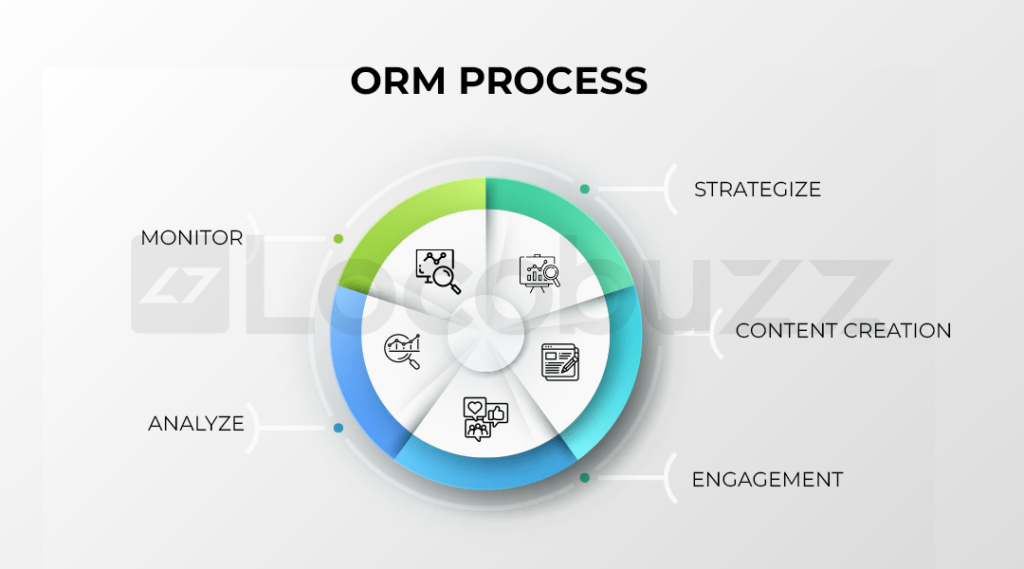
ORM begins with monitoring online mentions, discussions, and reviews related to the individual or brand.
This can be done through tools like Locobuzz which offers a complete solution to your customer experience management.
The gathered and monitored information is then analyzed to assess the overall sentiment and identify any potential issues or negative content that may be impacting the reputation.
This helps in understanding the scope and nature of the problem.
ORM strategy is developed to address the identified issues. This may involve creating a plan for responding to negative reviews or comments, promoting positive content, engaging with online communities, or improving overall online presence.
ORM often involves creating and promoting positive content to counterbalance any negative information.
This can include publishing articles, blog posts, press releases, social media updates, and other forms of content that highlight positive aspects and achievements.
The ORM process is an ongoing process. Monitoring online mentions should be done regularly to stay aware of any new developments or emerging issues.
Adjustments to the strategy and tactics may be needed based on the changing online landscape.
It’s important to note that ORM should be approached ethically, focusing on transparency, honesty, and addressing legitimate concerns.
It aims to build and maintain a positive online reputation by providing valuable content, engaging with the audience, and effectively managing any negative feedback.
PESO Model that contribute to ORM
Online reputation management (ORM) employs a variety of methods and techniques to influence and shape how a person, company, or organisation is perceived online.
The four major media types that contribute to ORM are a part of the PESO Model which are paid media, earned media, owned media, and shared media.
Each category represents a different way in which companies can distribute their messages and engage with their target audience.
Let’s look at each of these concepts in connection to ORM
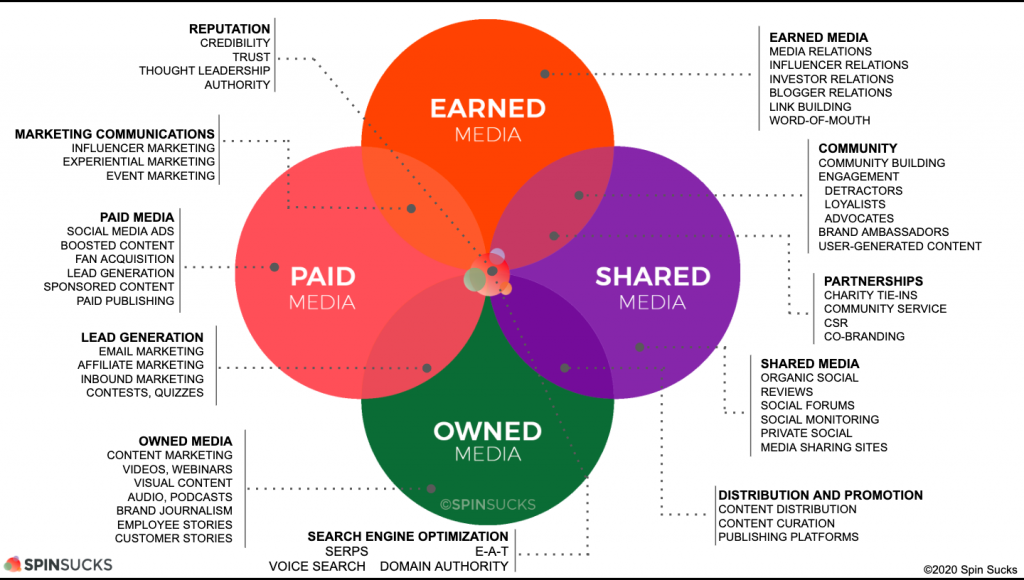 Image Source SpinSucks
Image Source SpinSucks
Paid Media
Paid media refers to using paid advertising channels and strategies to manage and enhance online reputation.
It involves investing in advertising campaigns to promote positive content, counteract negative information, or shape public perception through paid channels such as search engine advertising, social media advertising, display ads, sponsored content, influencer collaborations, and more.
Paid media in ORM is an additional tactic that can be employed alongside other ORM strategies to amplify positive messaging, increase brand visibility, and reach a broader audience.
By utilizing paid media, ORM aims to influence and shape the online narrative surrounding an individual, brand, or organization.
By incorporating the PESO model into ORM strategies, organizations can take a comprehensive approach to monitor and influence their online reputation across various media channels.
It allows for a balanced and integrated approach to building and managing a positive online presence.
Earned Media
Earned media is any organic, unpaid promotion received by a person, brand, or organization, such as word-of-mouth, mentions, reviews, social media shares, press coverage, and so on.
It is created by others and has a big impact on online reputation. Managing earned media entails engaging with users, actively listening to and responding to online debates, and resolving any negative comments or false information.
Shared Media
Examples of shared media include user-generated content, retweets, shares, comments, and other forms of user-generated content. Social media platforms are used to spread and magnify both owned and earned media.
Shared content can reach a wider audience and alter public opinion, which can have a significant impact on one’s online reputation. To correctly manage shared content, one must build brand advocates, encourage positive user interaction, and make effective use of social media networks.
A comprehensive approach that encompasses all of these media channels is required for effective ORM.
Individuals and organisations can improve their online reputation and mitigate negative consequences by actively managing earned media, strategically deploying paid media, optimising owned media platforms, and encouraging positive shared media interactions.
Owned Media
Owned media refers to an individual or organisation that owns and administers digital assets and online platforms.
This includes all owned channels, such as websites, blogs, social media accounts, email newsletters, and so on. In ORM, owned media serves as a foundation for developing a good web presence.
By producing high-quality content, providing reliable information, connecting with the audience, and exhibiting expertise, owned media can help shape the narrative and boost overall internet reputation.
Why businesses should use ORM?
There are several reasons why you might want to use ORM for your business. The main reasons are explained to you below.
ORM Protects your brand
ORM helps you to identify and address negative comments or reviews about your business that may appear online. By monitoring your online reputation, you can quickly respond to any negative feedback and address any concerns that customers may have.
Improves search results
One of the main benefits of ORM is that it can help to improve your search engine rankings. By promoting positive content about your business, such as positive reviews and customer testimonials, you can push down negative content in search results. This can make it more likely that potential customers will find your website when they search for your products or services.
Increases conversions
Positive reviews and comments can increase trust and credibility in your brand, which can lead to increased conversions and sales. When potential customers see that others have had positive experiences with your business, they will be more likely to make a purchase.
Provides valuable customer feedback
ORM can help you to gather valuable customer feedback and insights. By monitoring online reviews and comments, you can identify common issues or concerns that customers have and use this information to improve your products or services.
Builds and maintain trust
By addressing negative reviews, feedback and comments with proactive actions and efforts, it demonstrates that you care about the customer’s experiences, this in turn builds trust with current and future customers. This is especially important for small business and local business to maintain the trust of the local community.
Overall, ORM is an essential component of a successful digital marketing strategy, as it helps you to protect and promote your online reputation, which can have a significant impact on your business’s bottom line.
By using ORM techniques and tools, you can ensure that your business is presenting in the best light possible to potential customers, which can help to increase conversions, sales, and revenue.
Mentioned below is a screen snippet on how Apple Support continues to build trust with their customers.
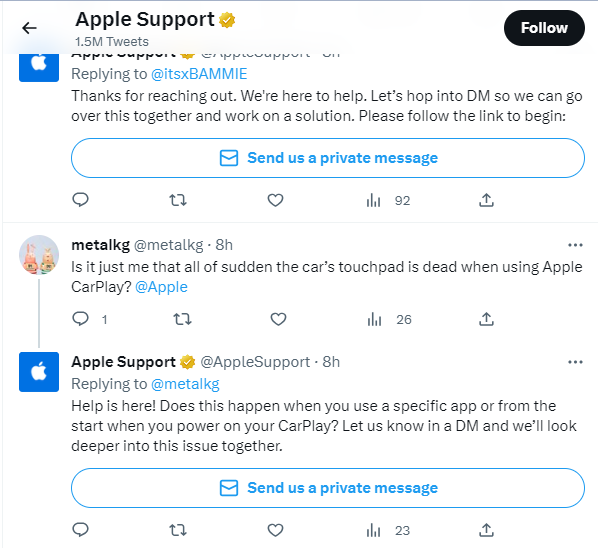
Apple support responding to customers on Twitter for caring towards the needs of their customers and maintaining a good reputation in the industry.
What is the Role of ORM in Making Digital Marketing Successful?
One of the primary goals of making a digital marketing approach successful is to increase customers’ trust in a particular brand. ORM helps in building customers’ trust by maintaining a brand’s reputation.
Here is a glimpse of the things that ORM maintains to make a digital marketing approach successful:
- ORM helps in strategizing the right kind of digital marketing approach to tracking and enhancing online perceptions of your company as per customer views.
- Digital marketing aims to reach potential customers by employing the right strategies. ORM enables companies to establish positive online relationships with potential clients. This helps to make the digital marketing strategy even more successful.
- ORM aids in maintaining the customer service experience of a brand to make its digital marketing strategy successful by creating a trustworthy brand image.
How is Online Reputation Management important for every business?
Businesses are increasingly using social media and the web to improve customer engagement.
Unfortunately, this is not always a positive experience as negative comments can sometimes be detrimental to businesses, with online reviews providing a snapshot of the most common complaints.
In many ways, social media has made customer engagement easier – customers can more easily connect with a company and share their thoughts, so SMBs must be able to handle this communication to help them to stand out in the crowd.
However, managing online reputation is a serious business and it’s all too easy for your customers to put your business down. Regardless of the size of your company, customers do have a voice.
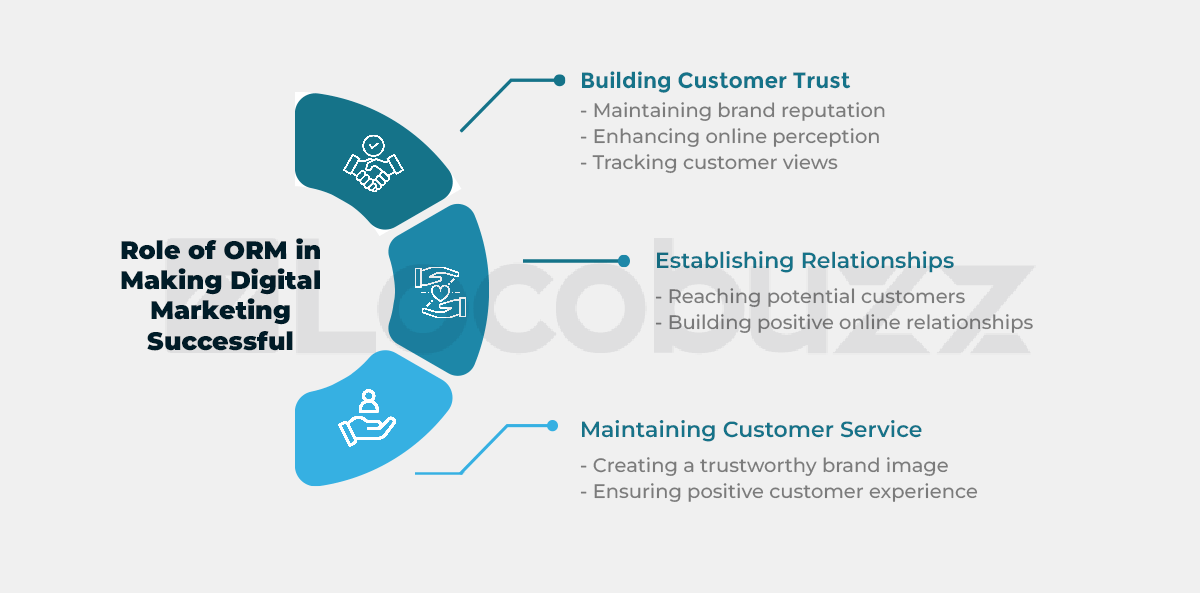
How is It Possible to Improve Customer Experience Through ORM?
Any company that wants to establish a strong presence in the online medium invests in online reputation management tool to organize the data and gain practical insights from it.
These insights work wonderfully to capture the customer experience.
Since ORM is responsible for maintaining a brand’s online image, it directly impacts the digital customer experience.
It is possible to improve customer experience through ORM by posting engaging social media content, product reviews, and product details, addressing the negative reviews, and connecting with customers to offer a meaningful solution.

The benefits of using online reputation management tools
It Boosts Sales
Before making a decision to buy a product or service, consumers usually search online. And before buying from a particular brand, buyers read online reviews to see what people are saying about the brand and its products and services.
Companies with excellent online reviews tend to attract more users. Companies that are perceived negatively or have a lot of negative feedback miss out on great advantages and opportunities.
It helps to build a brand image
Once negative brand information is shared online, customer loyalty is usually destroyed. This can have a negative impact on the business. The respect they have earned over years of work can be lost for a moment.
But an effective online reputation management strategy can help companies build their brand image.
Improves visibility
ORM improves brand visibility by monitoring and managing online conversations, reviews, and feedback about a brand. By addressing customer concerns, encouraging positive reviews, and creating engaging content, ORM enhances a brand’s online reputation.
Builds trust and credibility
ORM tools enable businesses to monitor online conversations, reviews, and feedback, allowing them to promptly address customer concerns and provide excellent customer service. By actively managing their online reputation, brands can foster a positive image and demonstrate their commitment to customer satisfaction, which in turn builds trust among current and potential customers.
How to Manage Your Brand’s Online Reputation
Managing your brand’s online reputation is essential in today’s digital age. Here are steps to effectively manage and maintain a positive online reputation:
1. Monitor Online Presence:Monitor social media platforms, review sites, and search engine results on a regular basis to remain up to date on what people are saying about your company. Track remarks and keywords relevant to your brand using web monitoring tools.
2. Respond Promptly: Respond to consumer feedback, comments, and reviews as soon as possible. Professionally and politely respond to both good and negative comments. Demonstrate that you respect your consumers’ feedback and are dedicated to addressing their problems.
3. Encourage Positive Reviews: Encourage happy consumers to give good feedback and testimonials on relevant review sites and social media channels. This might help you establish a positive internet reputation and balance out any unfavourable remarks.
4. Maintain Consistent Brand Messaging: Make certain that your brand’s messaging is consistent across all internet platforms. To develop a unified and good brand image, clearly define your brand values, mission, and key differentiators.
5. Deliver Outstanding Customer Experience: Concentrate on offering excellent customer service and a pleasant overall client experience. Customers who are pleased with a product or service are more inclined to become brand champions and share their positive experiences online.
6. Address Negative Feedback Proactively: When faced with negative feedback, respond promptly and constructively. Listen to customers’ concerns, offer solutions or apologies when necessary, and strive to resolve issues satisfactorily.
7. Build a Strong Social Media Presence: Actively engage with your audience on social media platforms. Share relevant content, respond to comments and messages, and participate in conversations. Building a strong online presence helps shape your brand’s reputation.
8. Monitor Online Reviews: Pay attention to online review sites and directories where customers can leave reviews. Respond to reviews, both positive and negative, and address any issues or concerns raised by customers.
9. Proactively Publish Positive Content: Create and share high-quality content that highlights your brand’s expertise, values, and positive aspects. This can help shape public perception and strengthen your online reputation.
10. Continuously Adapt and Improve: Regularly assess and adjust your strategies based on customer feedback, market trends, and changes in the online landscape. Continuously improve your brand’s online reputation management practices.
By actively managing your brand’s online reputation, you can build trust, maintain a positive image, and foster strong relationships with your audience and customers.
A Quick Discussion About Locobuzz Customer Experience Management Tool to Improve ORM
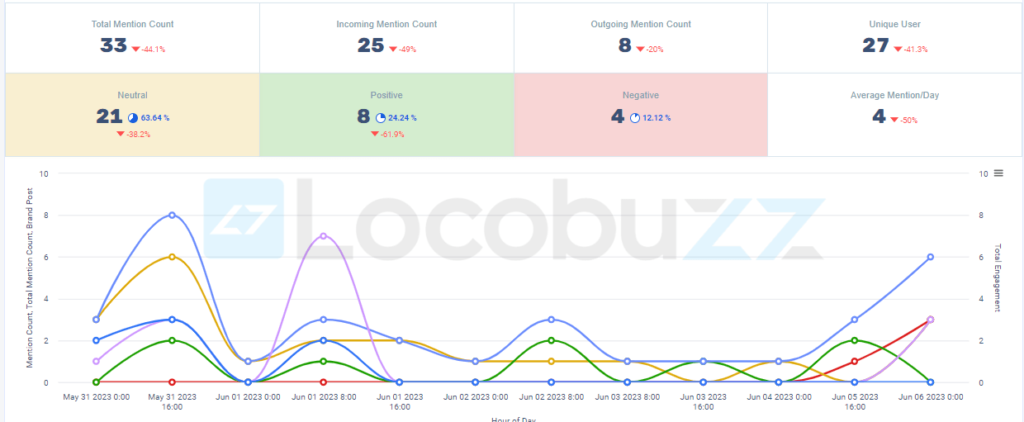
Locobuzz provides a unified CX management platform to help enterprises receive empowering business insights, customer response, customer journey mapping, competitive market perspectives, and business success rates.
Its new-generation management approach and online response management system transforms your company by helping you prevent a crisis with the help of analytics and crisis-centric data.
Why Locobuzz has the best ORM tool?
Locobuzz provides a comprehensive and feature-rich ORM platform that allows businesses to take total command of their brand’s image and reputation.
The platform offers real-time analysis and detailed insights into customer feedback and perceptions, allowing businesses to engage with their customers and prevent potential crises.
With Locobuzz’s ORM capabilities, businesses can monitor and respond to customers on key social platforms and digital sources, providing the ability to manage their brand’s reputation in real-time.
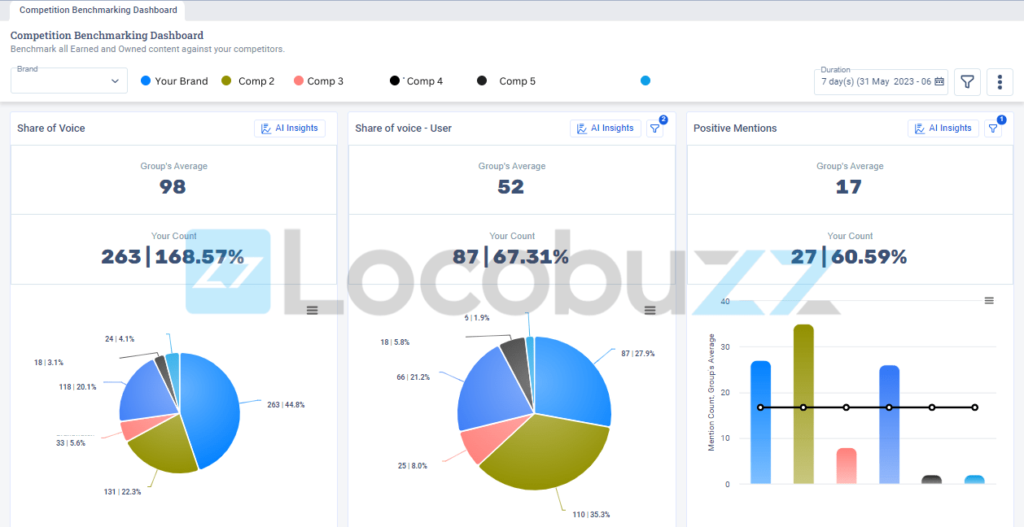
The platform offers the ability to conduct competition benchmarking, providing detailed insights into how competing brands operate, giving a business an edge to build their own strategic brand narrative.
The platform also offers crisis management capabilities, providing rich analytics, alert mechanisms and crisis-centric data to handle negative chatter and prevent a widespread crisis.
With its feature-rich and intuitive design, Locobuzz’s ORM platform provides the tools and capabilities needed for businesses to effectively manage and improve their online reputation.
Locobuzz's AI Solutions: Revolutionizing Online Reputation Management
Generative AI is a part of online reputation management (ORM) as it can help to automate responses to customer feedback, analyze sentiment, and provide insights into customer behavior.
By leveraging generative AI technology, brands can improve their ORM strategies, streamline their customer service operations, and deliver a more personalized and engaging customer experience.
Locobuzz, a leading customer experience platform, has launched ResponseGenie, an innovative generative AI technology designed to enhance the productivity and efficiency of brand agents.
ResponseGenie is a powerful tool that uses natural language processing and machine learning to provide instant responses to customer queries and issues, thereby reducing response times and improving customer satisfaction.
The Power of ResponseGenie’s AI Solutions
- ResponseGenie uses advanced AI algorithms to analyze customer messages and generate automated responses customized to the brand’s tone of voice and communication style.
- The technology learns from previous interactions, continuously improving responses over time, allowing agents to engage with customers in a meaningful way.
- ResponseGenie ensures consistency across all channels and platforms, including social media, chatbots, and email, building trust and loyalty with customers.
- ResponseGenie provides valuable insights into customer behavior and sentiment, helping brands identify trends, pain points, and opportunities for improvement.
- The tool can transform the way brands interact with their customers by streamlining customer service operations, improving agent productivity, and delivering a more personalized and engaging customer experience.
- ResponseGenie will be an invaluable asset for any brand looking to stay ahead of the curve and build long-lasting relationships with its customers in the constantly evolving digital landscape.
How will agents benefit from it?
Agents will benefit from ResponseGenie in several ways:
- Improved productivity: ResponseGenie generates customized responses to customer queries, freeing up agents’ time to focus on more complex issues.
- Consistency across channels: ResponseGenie ensures that responses are consistent across all channels and platforms, which helps to build trust and loyalty with customers.
- Faster response times: ResponseGenie provides instant responses to customer queries, reducing response times and improving customer satisfaction.
- Increased accuracy: ResponseGenie uses natural language processing and machine learning to analyze customer messages and generate accurate and relevant responses.
- Valuable insights: ResponseGenie provides valuable insights into customer behavior and sentiment, which can inform future marketing and customer service strategies.
- Reduced workload: ResponseGenie automates responses to routine queries, reducing the workload on agents and allowing them to focus on more high-value tasks.
Overall, ResponseGenie enables agents to provide a more personalized and engaging customer experience while also improving their own productivity and job satisfaction.
Conclusion
Analysis shows that digital advertising grew 15.3% to Rs 15,782 cr in 2020. This has been possible because implementing the right ORM strategies helps to do better with customer experience. ORM helps to identify the negative responses and to work with the issues involved. This leads to a better customer experience opportunity.
Locobuzz’s online response management system can help to keep your business customer-friendly, elevating customer experiences.




